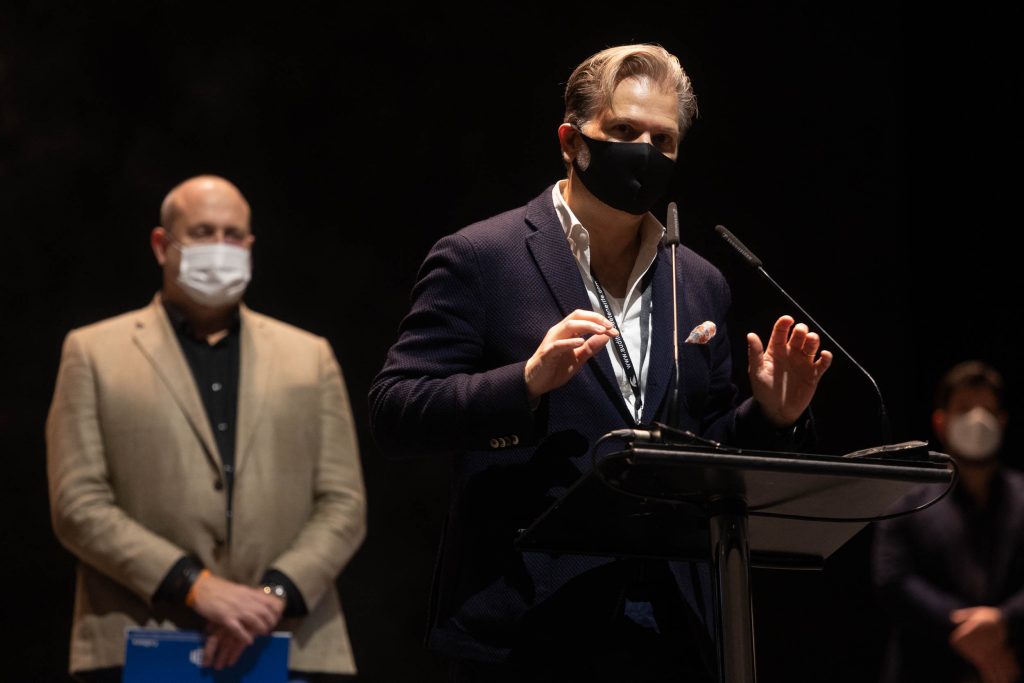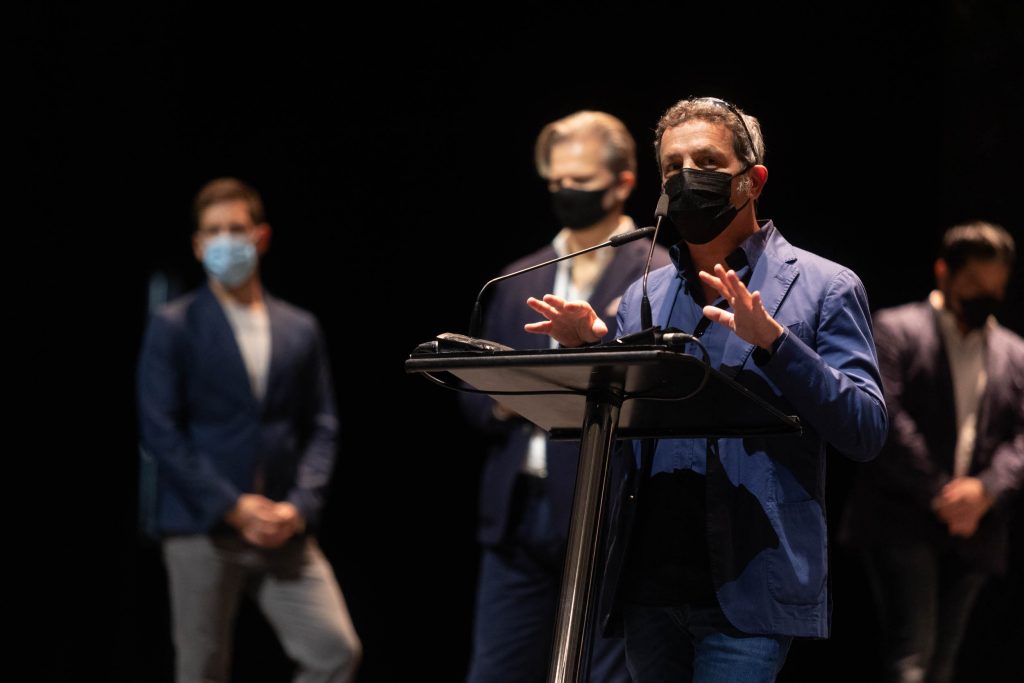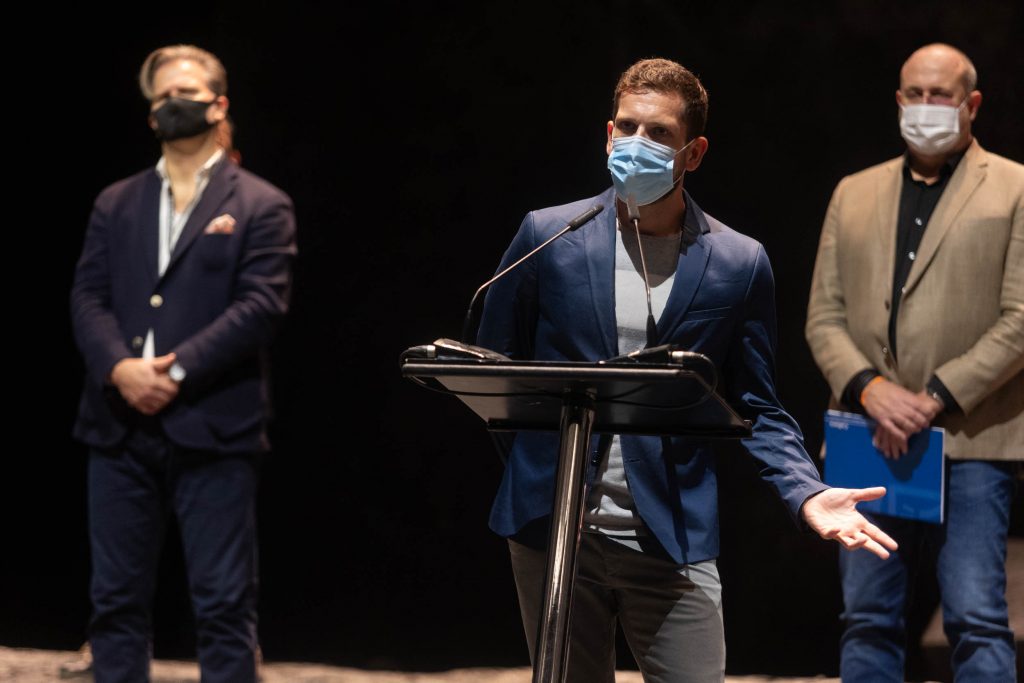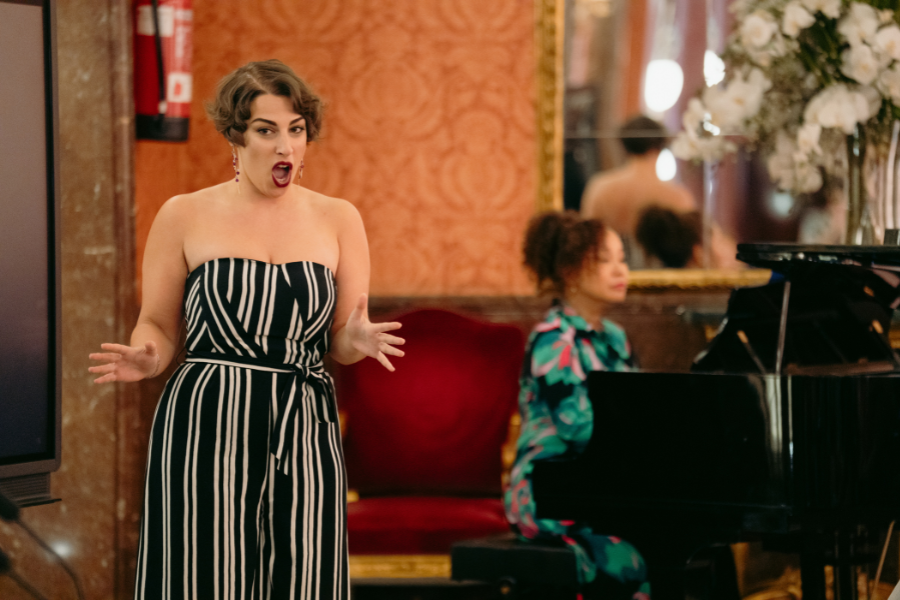Auditorio de Tenerife presenta ‘Attila’, una versión patriótica de Verdi sobre la vida del rey huno
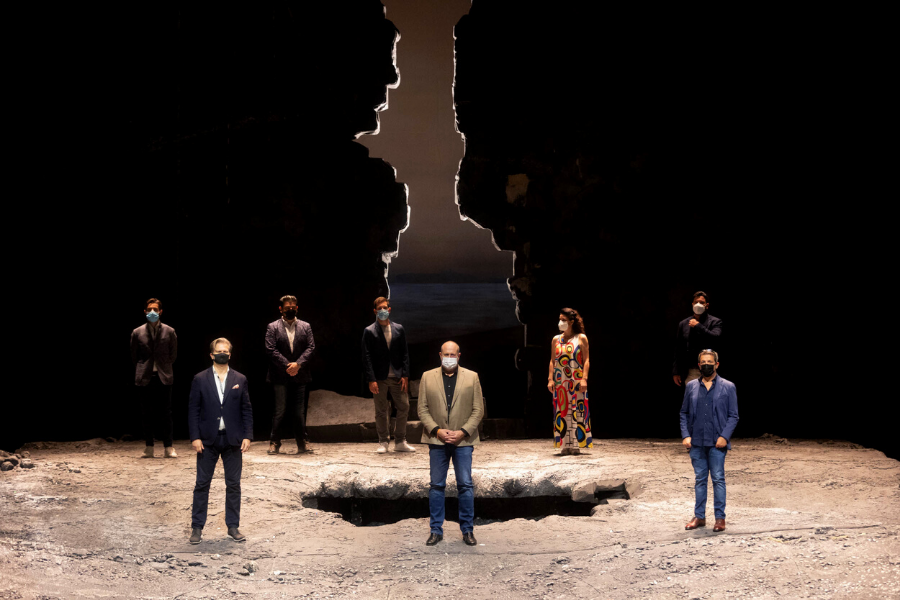
Esta coproducción, realizada con el Teatro Regio di Parma, sube al escenario de la Sala Sinfónica los días 23, 25 y 27 de noviembre.
El Auditorio de Tenerife presenta Attila, el segundo título de la temporada de Ópera de Tenerife. Se trata de una versión del Giuseppe Verdi más patriótico sobre la vida del rey huno, que tendrá lugar los días 23, 25 y 27 de noviembre a las 19:30 horas en la Sala Sinfónica. Los detalles sobre esta coproducción, realizada junto con el Teatro Regio di Parma, fueron dados a conocer por el consejero de Cultura del Cabildo, Enrique Arriaga; el director musical, Christopher Franklin, y el director de escena y escenógrafo de la obra, Andrea de Rosa.
Enrique Arriaga adelantó la relación de roles de esta producción: “El papel protagonista, Atila, lo interpretará el bajo croata Marko Mimica, mientras que la doncella Odabella será interpretada por la soprano búlgara Tanya Ivanova. El barítono Alfredo Daza será Ezio; el tenor Antonio Poli, Foresto; el bajo Rocco Cavalluzzi, Leone, y el tenor Javier Palacios hará de Uldino. A estas voces se suman las del Coro de Ópera de Tenerife”.
Arriaga recordó que la cultura es segura y más en Auditorio de Tenerife, primer espacio escénico con certificación de AENOR por su plan de prevención de contagios por covid-19. Por último, el consejero explicó que “desde el Cabildo se trabaja para que cualquier persona pueda acceder a la cultura y que la renta no sea un obstáculo; por ello, contamos con descuentos para desempleados, familias numerosas y menores de treinta años”.
El director músical, Christopher Franklin, que estará al frente de la Sinfónica de Tenerife, explicó que ya estuvo en 2018 en Ópera de Tenerife con Lucia de Lammermoor y que ahora llega para abordar una gran oportunidad. “Esta partitura es bombástica y patriótica, oscura y misteriosa, con un leitmotiv a modo de advertencia diciendo que tengan cuidado con los extraños con los que van a beber”, analizó el director, quien avisa de la formación reducida de la orquesta para esta ocasión por el correcto cumplimiento de las medidas de prevención.
Andrea de Rosa habló sobre el contenido de la obra y de la escenografía: “Se desarrolla durante la invasión de los hunos en Italia y habla del devastador impacto de la guerra, una violencia que afecta tanto a hombres como a mujeres y niños”. El director explicó que al escenificar una ópera así los personajes no se dividen en buenos y malos, sino que muestran otras facetas: “Así, Attila es un hombre feroz pero también reflejamos sus sueños y anhelos”. Para ello, los cantantes han de ser también actores para poder transmitir todos los matices. Misterio, sueño e inconsciente es lo que promete De Rosa en esta propuesta.
Marko Mimica, cantante protagonista, reconoció que ha estudiado a todos los que, antes que él, han cantado al Attila de Verdi para poder aportar al personaje. “Se puede decir que llevo diez años preparando este papel porque he cantado mucho una de las arias de la obra, que es especialmente complicada”, añadió el cantante croata, quien destaca los matices que esta ópera le aportan al personaje, como su amor por Odabella, y reconoce que es el rol más difícil de los que ha interpretado.
Esta es la novena ópera de Verdi y se compone de un prólogo y tres actos con libreto de Temistocle Solera. Esta propuesta se estrenó a mediados del siglo XIX y presenta la historia de Atila, rey de los hunos, y su relación con Odabella. La puesta en escena se aleja de las características tradicionales de este título, pero mantiene el espíritu de la obra verdiana. El equipo de Andrea de Rosa se completa con Alessandro Lai en el diseño de vestuario y Pasquale Mari en la iluminación.
El origen de Attila es la obra de teatro Attila, König der Hunnen (Atila, rey de los hunos), del alemán Zacharias Werner, que Verdi había leído tras encontrar referencias suyas en el ensayo De l’Allemagne, de Madame de Staël. Además, había sido estimulado por la sugerencia de escribir sobre un tema “bárbaro”. La historia se desarrolla en Italia en el año 425. Los hechos que se narran en el prólogo ocurren en Aquilea y la laguna Adriática, donde posteriormente se erigiría Venecia. Los tres actos siguientes suceden en Roma.
La ópera comienza cuando, durante la invasión de Italia, Atila ha conquistado la ciudad de Aquilea y ha asesinado a su señor, pero no a su hija: Odabella. Prisionera, jura vengar a su padre con la muerte del rey de los hunos. Atila se siente atraído por la fortaleza de su carácter y la pretende. Ella le da su consentimiento para facilitar sus planes. Aparece en escena Foresto, noble de Aquilea enamorado de Odabella.
Atila está alterado: ha soñado que un anciano le impedía conquistar Roma y le decía: “Tú eres el azote de la humanidad, pero estos son los dominios de Dios”. Aun así, ordena avanzar sobre Roma y le sale al paso el papa León I, quien le habla con esas mismas palabras. Atila reconoce en él al hombre de su sueño, se postra ante el representante divino y renuncia a tomar la ciudad. La ópera continúa desarrollando las subtramas de traición hacia el rey de los hunos, que acabará en tragedia a pesar de sus actos de bondad.
Las entradas se pueden adquirir hasta quince minutos antes del comienzo de cada función en la página web www.auditoriodetenerife.com, de forma telefónica en el 902 317 327 y en la taquilla de lunes a viernes de 10:00 a 17:00 horas y sábados de 10:00 a 14:00 horas. Hay disponibles precios especiales para familia numerosa, desempleados, menores de treinta años y abonados 19-20 de Ópera de Tenerife. Se ruega al público llegar al recinto con antelación suficiente para realizar una entrada escalonada a la sala.
La compra de las entradas supone la aceptación de las medidas implementadas por el centro cultural del Cabildo para hacer frente a la covid-19, como el uso correcto de la mascarilla o la asistencia solo con convivientes. Las medidas al completo, así como el plan de contingencia certificado por AENOR, se pueden consultar en la web del Auditorio.


